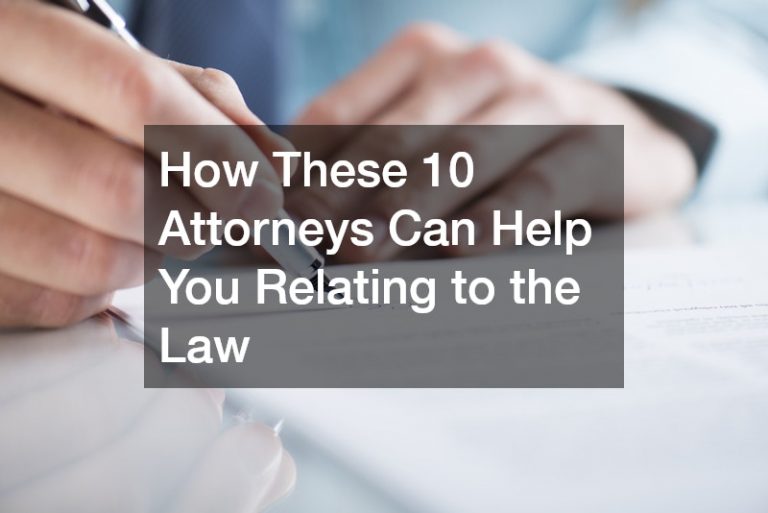
Planning for the future isn’t always easy, but it’s one of the most important steps you can take to protect your assets and loved ones. Estate planning involves more than just drafting a will—it often includes creating trusts, assigning powers of attorney, minimizing taxes, and making sure your wishes are legally enforceable. Because of the complexity involved, many people turn to an estate planning attorney for guidance. But before you commit, it’s essential to know the right questions to ask to ensure you’re working with the right person.
What Is Your Experience With Estate Planning?
The first and most crucial question to ask is about experience. Estate planning is a specialized field of law, and not all attorneys handle it regularly.
You want to know how long the attorney has been practicing, how much of their work is dedicated to estate planning, and whether they have handled cases similar to yours. For example, if you own a business, you’ll want someone familiar with succession planning. If you have real estate in multiple states, you need someone who understands the complexities of multistate probate.
An experienced professional can anticipate potential issues, explain options clearly, and customize a plan that reflects your unique situation. On the other hand, someone who only dabbles in estate planning may miss critical details that could cost your family time and money later.
As you evaluate experience, consider asking for examples of past cases or client situations. While attorneys may not share specific details due to confidentiality, they can often describe the types of matters they’ve handled. This can give you confidence that they’ve dealt with scenarios similar to yours and that the estate planning attorney you choose can manage your needs with precision.
How Do You Charge for Your Services?
Money matters are never comfortable to discuss, but clarity upfront can prevent unpleasant surprises later. Attorneys may charge in different ways: hourly rates, flat fees, or a combination of both. Flat fees are common for straightforward services like drafting a will or power of attorney, while more complex situations—such as establishing trusts or handling tax issues—may be billed hourly.
It’s important to ask what is included in the quoted price. For instance, will the fee cover initial consultations, drafting documents, and follow-up questions? Or will additional costs apply if your circumstances change down the road? Understanding the payment structure ensures you know exactly what to expect and can compare options more effectively.
When discussing costs, don’t be afraid to ask for an itemized breakdown. This transparency not only helps you budget but also reveals how the attorney values their services. Remember, the lowest price may not always equal the best value if the quality of work suffers.
How Will You Keep My Plan Updated?
Life is constantly changing, and your estate plan should reflect those changes. Major life events—such as marriage, divorce, the birth of a child, or the purchase of property—can all impact your plan. A good question to ask is how the attorney handles updates.
Some professionals may offer periodic reviews, while others leave it to clients to initiate changes. Be sure to ask whether revisions will be included in your original fee or if they require additional charges. You’ll also want to know how easy it will be to get in touch when updates are necessary. Having a clear understanding of this process helps ensure that your estate plan remains accurate and effective over time.
It’s also wise to ask about their communication style. Do they send reminders for annual check-ins, or do they expect you to reach out first? An attorney who proactively stays in touch shows commitment to keeping your plan aligned with your evolving goals.
What Happens If You Are No Longer Available?
This is a question that often goes overlooked but is highly important. Attorneys, like everyone else, may retire, relocate, or face unexpected health challenges. Ask about contingency plans: Who would take over your case if your attorney is unavailable? Does the firm have a team in place, or would you be referred to another professional?
It’s also worth asking about how your documents are stored. Some attorneys keep paper files, while others use secure digital systems. Either way, you should know how you or your family can access your documents if needed. This ensures that your estate planning process won’t be disrupted by unexpected changes in your attorney’s availability.
Choosing the right professional to guide you through estate planning is an investment in your family’s future. By asking about experience, fees, ongoing support, and contingency plans, you can make a well-informed decision that provides peace of mind. These questions don’t just help you evaluate qualifications; they also give you insight into whether you feel comfortable working together.
An estate planning attorney should not only be knowledgeable but also approachable, transparent, and committed to your long-term needs. Taking the time to ask the right questions before hiring ensures that your legacy is handled with care and your loved ones are protected. Whether your estate is simple or complex, the right guidance can make all the difference.




